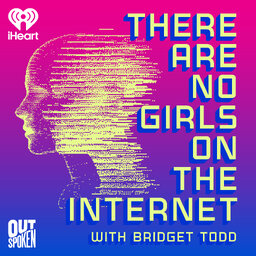How can we change Facebook? Try logging out for 3 days.
Thanks to whistleblowers like Sophie Zhang and Frances Haugen, we know more than ever about the harms Facebook has caused in our communities. But what can we, as just regular people, do about it?
Kairos, an organization that builds power for Black and brown people online, says we can start by logging off of Facebook for 3 days. Jelani Drew-Davi, Kairos Campaign Director explains why they’re calling for a 3 day national boycott of Facebook.
LISTEN to Sophie Zhang’s full story: https://podcasts.apple.com/us/podcast/how-to-be-a-whistleblower-with-sophie-zhang/id1520715907?i=1000539829571
Ready to log out of Facebook? Take the pledge: https://thefacebooklogout.com/
Learn more about your ad-choices at https://www.iheartpodcastnetwork.com
In 1 playlist(s)
There Are No Girls on the Internet
Marginalized voices have always been at the forefront of the internet, yet our stories often go over…Social links
Follow podcast
Recent clips

Amazon Ring Super Bowl Ad BACKFIRES; YouTubers Exploit Women's Arrest Videos; Salesforce CEO ICE "Joke" – NEWS ROUNDUP!
1:10:54

University of Oklahoma Trans Instructor's Attorney Still in the Fight After Appeal Denied
47:18

Should You Trust Andrew Huberman? What CBS's Epstein Disaster Reveals About Wellness Gurus
1:32:51
 There Are No Girls on the Internet
There Are No Girls on the Internet